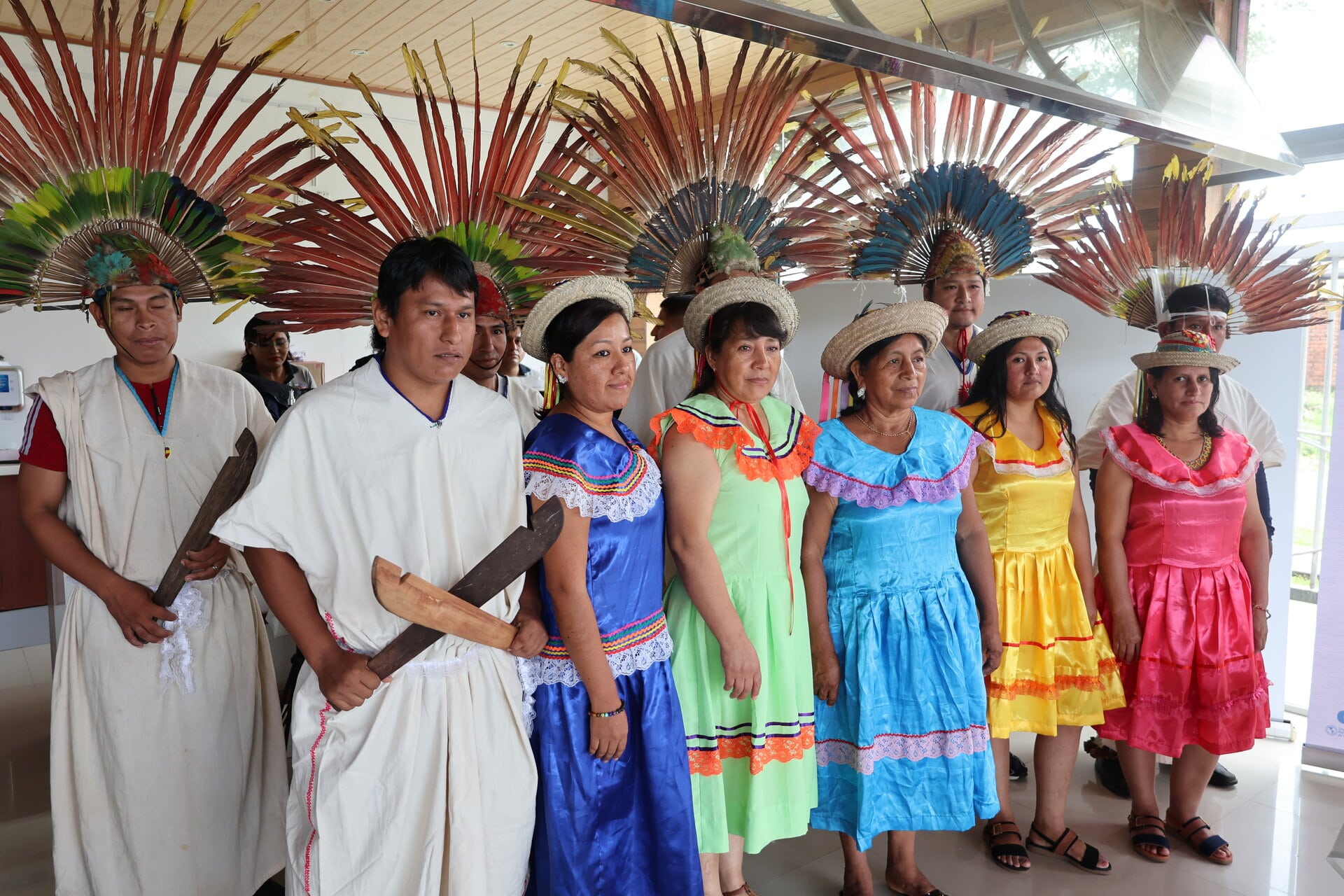Rocio Lazcano is an indigenous leader and President of the Social Health Council in the Department of Pando in Northern Bolivia, an area of rainforest that borders Brazil. She is passionate about ensuring the health of the indigenous population by advocating and representing the needs of the community.
“It is very important for the community to be able to help solve their health problems and have a say when discussing health issues. They express their needs and then their requirements for care can be met. We know that what is needed is coordination and joint planning across the health sector,” said Rocio.
Bolivia’s indigenous native persons make up over 40 percent of the country’s population. They often live in remote and rural areas and face particular health challenges such as an increasing prevalence of diabetes and cancer, as well as high rates of teenage pregnancy. In some areas, 50% of girls under 16 are pregnant, and all are at risk. Poor health outcomes are influenced by unhygienic water supplies, inadequate waste management, hard-to-reach locations, lack of transport for outreach health workers, and precarious health facilities.
For the past 25 years, Bolivia has undergone a process of political and administrative decentralization that has brought decision-making closer to the population. The Ministry of Health and Sport of Bolivia is currently implementing structural changes at community, departmental, and national levels to ensure indigenous voices and knowledge are part of policy processes.
As a result, indigenous people now have more opportunities to participate in decision-making about their health. Leaders from 64 indigenous communities have reached an agreement with municipal and departmental authorities and health personnel on advancing a health improvement plan for the most vulnerable populations.
Community participation to reduce health inequities

Photo credit: PAHO/WHO
The Ministry of Health and Sports of Bolivia formulated the community participation process within a policy known as Family and Community Intercultural Health. This policy seeks to ensure the right to health guaranteed by the State, as well as the elimination of social exclusion in health and the reduction of cultural barriers that prevent people from accessing health services.
The Pan American Health Organization/World Health Organization (PAHO/WHO) through the Universal Health Coverage (UHC) Partnership has supported the Ministry of Health and Sports of Bolivia in this endeavour since 2021. This technical support has been provided in three main areas: strengthening institutions to enable social participation, advocacy to extend participation, and operationalizing structures and decision-making.
Bolivia formed the National Social Health Council Board with representatives from its 9 departments, including from social organizations and indigenous populations.
"Today, communities, social movements, and civil society are exercising their right to obtain health for all. It is an achievement that we have this space to carry out our activities," said Mr Mario Ojeda Kama, President of the Departmental Social Health Council, Santa Cruz.
Indigenous Health Network
With technical support from PAHO/WHO, the Indigenous Health Network was created to discuss issues such as the right to free health care, to culturally appropriate health services, and to incorporating the use of traditional medicine. As part of this network, indigenous communities shared their concerns and proposed solutions.
"The active participation of indigenous communities through their health representatives, health authorities, and operational network personnel allows us to identify problems and make legitimate decisions for the benefit of our communities," said Dr Keyla Ávila, Coordinator of the Indigenous Health Network.
Progress toward universal health coverage
The Government of Bolivia is taking its commitment to universal health coverage seriously by ensuring indigenous populations’ participation in decision-making and planning processes for health, along with improved access to quality health services.
“This participatory and intercultural model which decentralizes decision-making on health and empowers indigenous people to claim their right to health is a huge step on Bolivia’s pathway to achieving universal health coverage. As Bolivia’s indigenous population takes greater control over the promotion and protection of health, the country will see impressive health outcomes in the future,” said Dr Alma Morales, the PAHO/WHO Representative to Bolivia.
The UHC Partnership operates in over 125 countries, representing over 3 billion people. It is supported and funded by Belgium, Canada, the European Union, France, Germany, Ireland, Luxembourg, Japan, the United Kingdom of Great Britain and Northern Ireland, and WHO.
